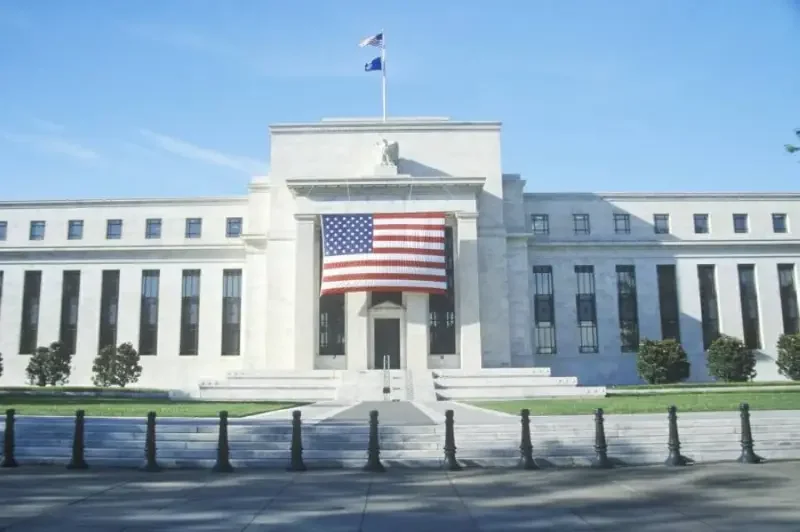
The Federal Structure Under Scrutiny with Trump’s Moves and Changing Power Dynamics
SadaNews - Regardless of what happens at the Federal Reserve's meeting in September, it will seem pale in comparison to a comprehensive reconsideration of the structure of the U.S. central bank, a possibility raised by Donald Trump's nomination of Stephen Miran to temporarily fill the vacant seat on the Federal Reserve Board, sparking debate about the structure of the Federal Reserve, its independence, and its central role in monetary policies.
Miran has previously called for reorganizing the voting mechanism and the appointment process at the Federal Reserve, linking the central bank more closely with government trends.
There are still many significant obstacles ahead for this major institutional change; for instance, Miran's nomination still requires approval from the Senate, and he would only have one vote under the current system.
Trump has not yet announced his candidate to succeed current Chair Jerome Powell next May, but with the appointment of a Trump-aligned chair, alongside Chris Waller, a pro-president member, Stephen Miran, and Michelle Bowman, who was previously appointed by Trump, the majority of the board, consisting of seven key members, will be aligned with the president's directions; however, the five regional bank presidents who complete the 12-member monetary policy-making committee will remain.
The five regional bank presidents can halt the influence of Trump's allies, but their opinions are likely to be volatile, especially after last week’s weak employment report and the markets' expectations of a resumption of interest rate cuts next month.
Storm
Reevaluating the Federal Reserve's structure, performance, and independence is a matter much deeper than the influence of Trump's friends; there could also be potential opposition from Congress, and voices within the U.S. administration were quick to downplay these speculations.
Scott Pessen, the Treasury Secretary, who spoke last month about the need to examine the entire institution, told NBC this week that Trump has a "great respect" for the central bank and that he "loves dealing with U.S. Federal Reserve governors."
Former Federal Reserve officials, such as Bill Dudley, the former president of the New York Federal Reserve Bank, believe that the institution and its independence will withstand Trump's repeated attacks on the current leadership.
In an opinion piece published in Bloomberg this week, Dudley wrote, "Don’t be fooled by the drama! Regarding how the Federal Reserve manages the economy, it’s like a storm in a teacup."
Nevertheless, Miran’s appointment suggests that Trump’s economic vision will be integrated into the Federal Reserve.
Massive Shift
Some critics argue that Trump’s dramatic embrace of digital assets, cryptocurrencies, and stablecoins is already an indication of a trend that could transform the world of currency and the banking system.
Last month, Trump signed a law to establish a regulatory framework for stablecoins linked to the U.S. dollar, a move seen as paving the way for the adoption of these digital assets as a more widespread means of daily payment and financial transfers.
Kenneth Rogoff, the former chief economist of the International Monetary Fund, wrote this week that Trump’s framework for stablecoins bears striking similarities to the free banking era of the 19th century when the U.S. had no central bank at all.
Rogoff wrote on Project Syndicate, “At that time, private banks issued their own currency backed by dollars, and the consequences were often severe, including fraud, instability, and frequent runs on banks.”
While similar problems "must arise" with stablecoins, particularly tax evasion, Rogoff noted that today’s major issuers of stablecoins are more transparent and better capitalized than their 19th-century counterparts.
The fate of the Federal Reserve's role in a world of currencies independent of it remains a completely different issue.
Trump supporters view analysts as exaggerating Trump’s off-the-cuff remarks and that things often end up in reasonable plans; however, Mike Dolan, the financial and market affairs editor at Reuters, states that underestimating or questioning Trump’s intention to reshape American and global institutions has proven to be the "foolishness of the year."

Oil Drives Saudi Economy to Highest Annual Growth Since 2022

Egypt Restarts Sugar Exports After Three-Year Hiatus

Europe Will Not Use the Exit from U.S. Treasury Bonds as a Weapon

The Rise of the Euro Threatens the European Central Bank's Inflation Strategy

Apple Pays Two Billion Dollars to Acquire an Israeli Startup.. What's the Story?

Gold and Silver... From Historical Peaks to Collapse

Partial Financial Shutdown Begins in the United States with Anticipation of Quick Resoluti...
